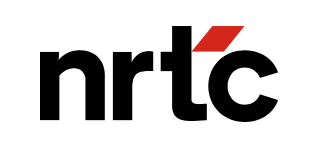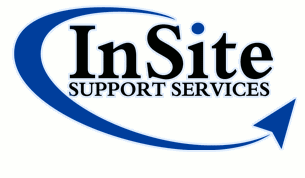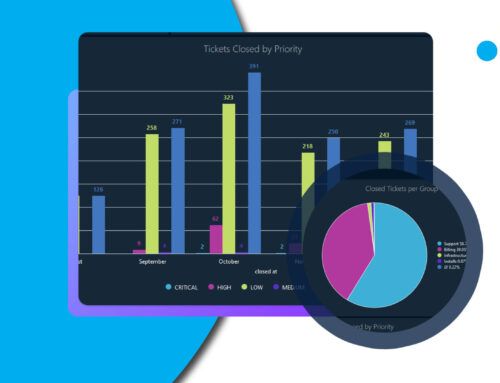Customer service is an essential part of your brand reputation and business growth. Without exceptional customer support, your company won’t thrive, even if you have the best service and pricing in your area. If your organization experiences sudden growth, you’ll need to maximize all internal teams to meet your new customers’ needs. Unfortunately, many Internet Service Providers are pressed for resources, and in-house customer service departments rarely scale easily, but this isn’t an issue when you outsource to a trusted partner.
When done right, outsourcing customer service can deliver the same levels of customer care with the added benefits of scalability and the flexibility you need for your growing business.
Understanding Outsourcing
Outsourcing is more than just shifting the burden of responsibility from one organization to another. Good customer service is a metric for success in the competitive ISP marketplace, and making customers wait on hold to speak with your next available agent for minutes, or hours, on end is the pinnacle of poor customer service. Finding a balance between cost-effectiveness and customer experience for your support and sales teams can be a long and difficult process, but the end result is a happier, more loyal customer base.
Utilizing all of your available resources is the best way of reaching that balance, and outsourced call centers are a perfect representation of a simultaneously overused and underused resource. While some organizations rely entirely on outsourced call centers and provide little to no training on their product, others suffer from long wait times and still refuse to invest in a reliable 3rd party call center, resulting in poor customer experience. Outsourcing doesn’t need to be a bad word – signing a contract with a 3rd-party call center is just another way of using contractors to better serve your organization and your customers.
There are several key considerations before deciding to use an outsourced support team:
- Why are you unable to keep up with the support load?
- Where will an outsourced call center benefit your business the most?
- How will outsourcing affect your customer experience?
Outsourcing can be incredibly useful when expanding your serviceable area, handling unexpectedly high-volume days, or simply giving your dedicated team some backup.
Scaling Up Support – Cost vs Benefit
Liam McIvor Martin wrote an article on timedoctor.com that highlighted some of the right reasons and some of the wrong reasons to consider outsourcing your Customer Service team, and one of the first reasons they mention is the need to quickly scale support. Hiring and training a team of subject matter experts within your organization is a perfectly valid approach, but when you need a boost to your support team, such as during the holiday season or after acquiring a large number of new customers, it quickly becomes apparent that a small number of subject matter experts won’t cut it.
When scaling support, evaluate the recurring costs associated with a 3rd-party outsourced call center versus those associated with hiring, training, and retaining even a single new agent – a contract with an outsourced support group can be incredibly competitive. Additionally, one new agent can easily get bogged down on a long or difficult call, while an outsourced call center will continually have new agents available to you, at no additional cost beyond the contract value.
When scaling your support, another consideration for choosing an outsourced call center is deciding between 3rd-party vendors with shared agents versus a 3rd-party vendor with dedicated agents. Oftentimes, shared agents will be less intimately familiar with your services but the agreement with the vendor will cost less. This is another case of analyzing cost and its effect on your organization’s profitability margins versus the benefit to customer experience with agents who have more time to familiarize themselves with what you offer.
Covering Your Bases – After-Hours and Overflow
When customers sign up for service with your organization, they have expectations regarding service deliverability and uptime. When services go down, customer expectations mean that 24/7 support is nearly mandatory for competitive Internet Service Providers.
Staffing a call center for 24/7 support is an incredibly expensive prospect, and many small to medium ISPs struggle to amass the customer base or capital to justify such an expenditure. By leveraging 3rd-party call centers, you’re able to provide the support customers need and expect without a large upfront investment.
Another way you can leverage outsourcing your support or sales teams is by opening an overflow-only agreement with the selected company. This would allow your organization to forward calls that spend too long in the queue or ring over a certain number of times to the outsourced team, reducing wait times and enhancing customer satisfaction. These sorts of contracts are often on a per-minute or per-call basis and provide an additional layer of customer care if you’ve opted to primarily staff support and sales in-house.
Working in Sonar and Maximizing the Power of the Platform
When working with any contractor it’s important to know how much access they need in order to perform their designated function adequately. With Sonar’s robust user role permissions, you can provide granular access to the contractors working at the 3rd-party call center by providing them all a unique user in your instance. This enables the call center agents you work with to access customer information, ticketing features, Pulse mapping, and inventory information on your instance. The added benefit of the permission features within Sonar is that you can also very easily restrict access to specific functions, such as the Settings page of your instance, or the ability to make changes to accounts, such as account statuses or groups.
Once you’ve set the user permissions for your outsourced representatives, they can begin using Sonar to manage customer troubleshooting, customer sign-up, and any other duties assigned to them. Sonar will allow these representatives to create call logs when they speak to a customer, create tickets for follow-up questions and escalations, and leave notes on customer accounts when necessary. Sonar will also record every action taken by these users – whether they’re accessing accounts, browsing inventory items, making tickets, or sending mass emails, Sonar will track, store, and report on all of it.
The last consideration to maximize the power of Sonar is vetting the right 3rd-party contact center to outsource your calls to – we recommend the below providers, as they’ve dealt with Sonar in the past and are already aware of the software’s functionality:
1)https://www.nrtc.coop/solutions/managed-services/support-services


3) http://www.insitesupport.com


Before you choose any outsourcing provider, make sure you’re doing it for the right reasons and positioning yourself for success by using outsourcing as a resource and not a wholesale replacement. Keep in mind the 3 key points mentioned earlier in this article, the functionality you can leverage with Sonar, and your own organization’s goals and strategies.




